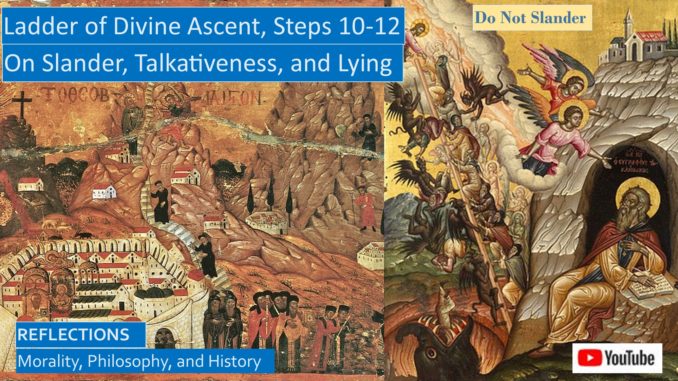
Many people think that one of the Ten Commandments prohibits us from lying, but that is a shallow understanding of the commandment. Actually, the Ten Commandments urges us not to bear false witness against our neighbor. Not only are we forbidden to slander our neighbor, but we are also urged to guard his reputation. We slander our neighbor even when we tell the truth in a hurtful manner.
In the Ladder of Divine Ascent, the rung we climb where we struggle against slander precedes the rung where we struggle against lying.
When we look at the rungs of the ladder we climb up to the rungs where we counter the vices of slander and lying, we notice that we first must be repentant and abandon our remembrance of wrongs that leads to forgiveness.
YouTube link: https://youtu.be/SLBIdDHRy3A
YouTube script with book links: https://www.slideshare.net/BruceStrom1/st-john-climacus-in-ladder-of-divine-ascent-on-slander-talkativeness-and-lying
St John Climacus teaches us,
“Step 9.2 Remembrance of wrongs is the consummation of anger, the keeper of sins, hatred of righteousness, ruin of virtues, poison of the soul, worm of the mind, shame of prayer, cessation of supplication, estrangement of love, a nail stuck in the soul, pleasureless feeling cherished in the sweetness of bitterness, continuous sin, unsleeping transgressions, hourly malice.”[1]
Having an unforgiving heart leads us to slander, as St John Climacus notes:
Step 10.1. “No sensible person will dispute that slander is born of hatred and remembrance of wrongs.”
Step 10.2. “Slander is an offspring of hatred, a subtle yet coarse disease, a leech lurking unfelt, wasting and draining the blood of love.” Continuing with perhaps an imperfect translation, “Slander is a simulation of love, the patron of a heavy and unclean heart, the ruin of chastity.”
Father John Mack translates this differently, condemning hypocrisy, “Slander puts on the appearance of love and is the ambassador of an unholy and unclean heart.” Father Mack teaches us that “putting others down” behind their backs “can also be a way that we build ourselves up. I make us look good, as more pious, as more intelligent, so we can point out the bad in someone else. Slander often puts us into the good graces of others when we join them in their slander.”[2]
Lying is a bad habit, and St John Climacus urges us not to lie two rungs hence, but we first must learn how we should not slander our neighbor:
Step 10.16. “A good grape-picker, who eats the ripe grapes, will not start gathering unripe ones. A charitable and sensible mind takes careful note of whatever virtues it sees in anyone. But a fool looks for faults and defects.”
Then St John Climacus takes aim at me and hits me over the head with a 2X4:
Step 10.4 “I have heard people slandering, and I have rebuked them. And these doers of evil replied in self-defense that they were doing so out of love and care for the person whom they were slandering.” Now I have said much this same thing in other videos, when I said that this might be okay. But St John Climacus says to me: “Stop that kind of love, otherwise you will be condemning as a liar him who said in the Psalms: ‘He that talked against his neighbor, him did I drive away.’”
So, the message here is to examine your motives, your motives in your inner heart, are your motives pure, or are your motives selfish? Be careful, there is always a spiritual danger when you speak unkindly things of another, even when they are true, and even when you think you do it out of love, because maybe you are trying to fool yourself of your good intentions.
Father Vassilios observes that when “we see someone sinning and think we have seen the whole person, when in fact we have only caught a glimpse of him at his worst or at his weakest. We do not know whether that person has then shed tears in prayer and begged God for forgiveness. Unfortunately, we are keen to see people’s visible iniquities, but we are not so quick to consider their unseen repentance.”[3]
As St John Climacus asks all of us, How can we see our own vices accurately? How do we know whether we see through the veil of self-love? As St John Climacus teaches us:
Step 10.14. “To judge others is a shameless arrogation of the Divine prerogative; to condemn is the ruin of one’s soul.”
We are truly fools when we try to judge others. When we judge and slander others, we want those who hear us to agree with us in reveling in the faults and imperfections of those whom we both know, but in doing so we sow poison in the air. When we judge and slander, we really are destroying our own reputation, for few enjoy listening to people tear others down.
Often when we judge and slander emphatically to anyone who will listen, we are really revealing what our own faults are, because we probably secretly see them in those whom we judge. So, when we condemn others, we are really ruining our own reputation. When we gaslight, we ruin our own soul in the hatefulness of our heart.
As St John Climacus warns us, quoting Jesus from Matthew 7:
Step 10.9. “If it is true (and it really is true) that ‘with what judgment ye judge, ye shall be judged,’ then whatever sins we blame our neighbor for, whether bodily or spiritually, we shall fall into them ourselves. That is certain.” To summarize: Christians do not gaslight.
Just as we learned that in this same sermon Jesus warns us that if we forgive others our Father in Heaven will forgive us, and if we do not forgive others our Father in Heaven will not forgive us, now we learn that we will be judged in the same manner that we judge others. Judging is what we do in our hearts, and slander is when we speak out to others our judgment. So, as we should be perfect in our forgiving, not cherry picking whom we will forgive and who is not worthy of our forgiveness; so we should not cherry pick whom we will judge and who we will not judge, we should strive for perfection in seeing the good and not the bad in others.
Although John Climacus often talks of how the brothers should obey the abbot of the monastery, he does not say the brothers should correct each other, rather they should be patient with each other’s faults. St John Climacus teaches us that we should not tolerate slander and harmful gossip:
Step 10.7. “Do not regard the feelings of a person who speaks to you about his neighbor disparagingly, but rather say to him: ‘Stop, brother! I fall into graver sins every day, so how can I criticize him?’”
So, you slander when you listen to slander. You do not think the best of your neighbor, and this affects your relationship with him, and with God. Again, for emphasis, we are told not to judge:
“In this way you will achieve two things: you will heal yourself and your neighbor with one plaster. This is one of the shortest ways to the forgiveness of sins; I mean, not to judge,” as Scriptures exhort us, “Judge not, and ye shall not be judged.”
For many years I have been facilitating divorce support sessions, we can learn from the moral dilemmas faced in these tragic situations. Such as, When someone is contemplating in their heart divorcing their spouse, what do they do? They complain about to their spouse to their friends and family and co-workers and anyone else who will listen. Who pushes back? Who agrees? Who points out what is good in the absent spouse? Who realizes what is really going on, that they are trying to find confirmation for doing what they know in their heart they should not?
How quick we are to judge; how quick we are to slander. St John Climacus has advice for those who wish to conquer this horrible habit:
Step 10.5. “He who wants to overcome the spirit of slander should not ascribe the blame to the person who falls, but to the demon who suggests it. For no one really wants to sin against God, even though we all sin without being forced to do so.”
Our modern world accuses us of being superstitious of believing in demons, although they certainly exist. But perhaps more than the ancients know we realize how we are prisoners of our past, as St John Climacus teaches us:
Step 10.11. “The demons, murderers as they are, push us into sin. Or if they fail to do this, they get us to pass judgment on those who are sinning, so that they may defile us with the stain which we ourselves are condemning in another.”[4]
STEP 11. ON TALKATIVENESS AND SILENCE
This chapter on talkativeness and silence is rather terse, St John Climacus begins by teaching us that:
Step 11.10. “He who has come to love stillness shuts his mouth, but he who delights in wandering about outside is driven out of his cell by his passion.”
How can we apply this advice to our life in the secular world? Our saint would be counselling us to concentrate on doing our own job, living our own godly life, before we worry about how everyone else is doing their job, judging the imperfections of our neighbor.
These are also great questions to ask before posting comments on the internet, keeping in mind that real people with real feelings read what you post.
Pope Francis discusses at length how damaging hateful flame wars on Twitter, Facebook, and Social Media can be to both the faith and the faithful in his papal decree on Gaudete et Exsultate, On the Call to Holiness in Today’s World.
http://www.seekingvirtueandwisdom.com/pope-francis-mentions-abortion-in-gaudete-et-exsultate-with-a-prayer-from-pope-benedict/ and https://youtu.be/jF-fsMvYsak
Father John Mack asks, “How often do we ask ourselves, ‘Should I be talking now? Is there a reason for talking? Can anything good come from what I have to say?’” These are also great questions to ask before posting comments on the internet, keeping in mind that real people with real feelings read what you post.[5]
St John Climacus contrasts talkativeness with contemplative silence. What does he say about talkativeness?
Step 11.2. “Talkativeness is a sign of ignorance, a door to slander, an inducement to jesting, a servant of falsehood, the ruin of compunction, a creator and summoner of despondency, a precursor of sleep, the dissipation of recollection, the abolition of watchfulness, the cooling of ardor, the darkening of prayer.”
In one of the Teaching Company lectures, a communications professor told how most people immediately form prejudices about whomever they are listening, distorting in their mind the message the other person is trying to get across. He advised that when you listen you should be quiet, and although he did not say prayerful, he could have, because he said we should pause, reflect on what is being said, being watchful to hear the message. Although his intention was not at all religious, he repeated much of what St John Climacus teaches as necessary for effective listening and communication.
Contrast this with intelligent silence as described by St John Climacus:
Step 11.3. “Intelligent silence is the mother of prayer, a recall from captivity, preservation of fire, and overseer of thoughts, a watch against enemies, a prison of mourning, a friend of tears, effective remembrance of death, a depicter of punishment, a delver into judgment, a minister of sorrow, an enemy of freedom of speech, a companion of stillness, an opponent of desire to teach, increase of knowledge, a creator of divine vision, unseen progress, secret ascent.”
Step 11.7. “Peter, having said a word,” and here St John Climacus refers to how eagerly Peter assured Jesus that he would never betray him, thought betray him he did, not once, not twice, but thrice as the cock crowed on the night of the Crucifixion of Christ. St John Climacus says St Peter forgot the words of the Psalmist: “I will take heed to my ways lest I sin with my tongue,” and from Ecclesiasticus: “A fall from a height to the ground is better than a slip with the tongue.”
Pray more, talk less; but talk more, pray less. We jest when we say of people who talk non-stop that they love to listen to themselves talk. Just as we are prisoners of our past, so we are held captive to our emotions if do not think and ponder before we talk.[6]
STEP 12. ON LYING
What does the first paragraph in On Lying warn against?
Step 12.1 “The offspring of flint and steel is fire; and the offspring of chatter and joking is lying.”
We are not justifying Will Smith’s decision to slap Chris Rock when his joke offended Jada Smith, Will Smith’s wife, and we also concur with those who feel that this act of violence, which could have led to a criminal assault charge, is a greater offense than Chris Rock’s joke.
But this incident does illustrate the spiritual dangers of joking, especially jokes that belittle our neighbor, especially jokes about our neighbor’s race, gender, weight, or ailment, all of which are either impossible or very difficult to change. We know that monastic manuals such as the Ladder of Divine Ascent lay down strict rules that can be tempered by laymen, but everyone should be very cautious about what jokes they tell, especially jokes that laugh at our neighbor. Perhaps Christians should be reluctant to become comedians.
You ascend the Ladder of Divine Ascent by breaking bad habits and creating new habits, and once we break the bad habit of talkativeness, we can also break the bad habit of lying.
St John Climacus in the Ladder of Divine Ascent teaches us that the liar commits a most serious sin, “a lie is the destruction of love,” you must be careful what you say, what you hear, you should be especially careful lest your joking chatting crosses over into gossip and slander. Laughs and jokes should never be at the expense of your neighbor’s reputation and the salvation of your soul. Why do we lie and slander? “Some lie for sheet wantonness, some for amusement, some to make bystanders laugh, some seek to trap their brother and injure him.” “Hypocrisy is the mother of lying, and often its occasion.”
St John Climacus teaches that there is great spiritual danger in lying for any reason, even when we twist the truth to avoid hurting our neighbor, or even to save his reputation, , as he warns us:
Step 12.11. “The inventor of lies makes out that he is an imitator of Rahab, and says that by his own destruction, he is effecting the salvation of others.
But then he responds:
Step 12.12. “When we are completely cleansed of lying, then we can resort to it, but only with fear and as occasion demands.”
We discuss this in greater depth in our blog on Dr Laura and her rabbi’s book on the Decalogue. We should always be very reluctant to exaggerate and twist the truth, only telling white lies when the truth would harm our neighbor, and we should never slander, as slandering is always done with malicious intent.
St John Climacus teaches us:
Step 12.4. “I have seen some who, priding themselves on their skill in lying, and exciting laughter by their jests and twaddle, have pitiably destroyed in their hearers the habit of mourning.”
Pity the liar who lies so much he starts to believe in his own lies, and nothing he says is ever the complete truth.
So much of what St John Climacus teaches needs no comment:
Step 12.8 “There is one judgment for him who lies through fear of punishment, and another for him who lies when no danger is at hand.”
Step 12.2. “A lie is the destruction of love, and a false oath is a denial of God.”
Step 12.3. “A babe knows nothing of lying; neither does a soul that is stripped of guile.”[7]
When can we resort to lying? Examples include the midwives who refused the orders of Pharaoh to kill the Hebrew newborn sons, lying to say the Hebrew women were healthy quick and delivered before they could arrive. Another example is when Schindler lied constantly to the Nazis to save as many Jews as he could in his factories, while manufacturing only duds for ammunition.
Father Vassilios tells a story about a man who loved to gossip, but when he learned he had ruined a man’s reputation irreparably, he confessed to his rabbi and asked how he could make amends.
“The rabbi asked, ‘Do you have any feather pillows?’
‘Yes,’ the man replied, ‘I have many.’
‘Take one,’ said the rabbi, ‘cut it open, and throw the features out of the window. Then come and see me tomorrow.’
The next day the man went to see the rabbi again and said, ‘Rabbi, I did as you asked. What do you want me to do now?’
The rabbi replied, ‘Go and find every single one of these feathers and put them back in the pillow.’
In disbelief, the man replied, ‘But those feathers are long gone. That is impossible! You know that!’
‘Indeed,’ said the rabbi, ‘and that is how it is with our words when we gossip.’[8]
We will conclude with what Father Vassilios teaches us, “The purer our hearts, the purer our speech; the more considerate and thoughtful and recollected we are through a life of prayer and contemplation, the less harm our words will cause. Thus, only the pure in heart are able to purify the tongue and use it as a tool for good without leading us time and again into a whole host of troubles.”[9]
[1] St John Climacus, The Ladder of Divine Ascent, translated by Lazarus Moore, updated by others (Boston: Holy Transfiguration Monastery, 1991), Step 9, p. 87.
[2] Father John Mack, Ascending the Heights, Laymen’s Guide to the Ladder of Divine Ascent (Ben Lamond, California: Conciliar Press, 1999), Step 10, p. 54.
[3] Father Vassilios Papavassiliou, Thirty Steps to Heaven, The Ladder of Divine Ascent for All Walks of Life (Chesterton, Indiana: Ancient Faith Publishing, 2103), Step 10, p. 88.
[4] St John Climacus, The Ladder of Divine Ascent, Step 10, pp. 89-92.
[5] Father John Mack, Ascending the Heights, Step 11, p. 62.
[6] St John Climacus, The Ladder of Divine Ascent, Step 11, pp. 92-93.
[7] St John Climacus, The Ladder of Divine Ascent, Step 12, pp. 93-95.
[8] Father Vassilios Papavassiliou, Thirty Steps to Heaven, Step 12, p. 106.
[9] Father Vassilios Papavassiliou, Thirty Steps to Heaven, Step 11, p. 100.

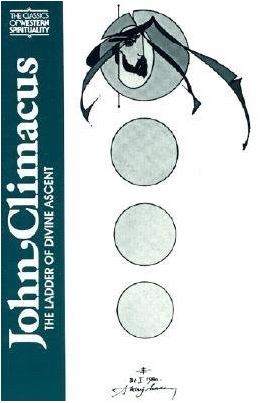

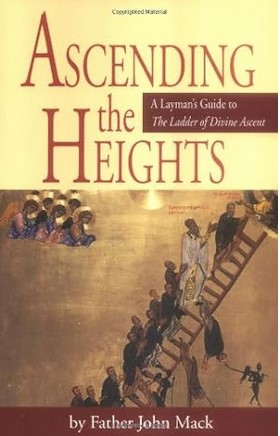

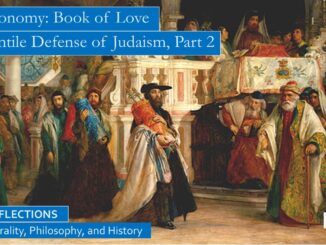
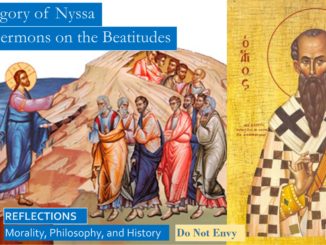

1 Trackback / Pingback